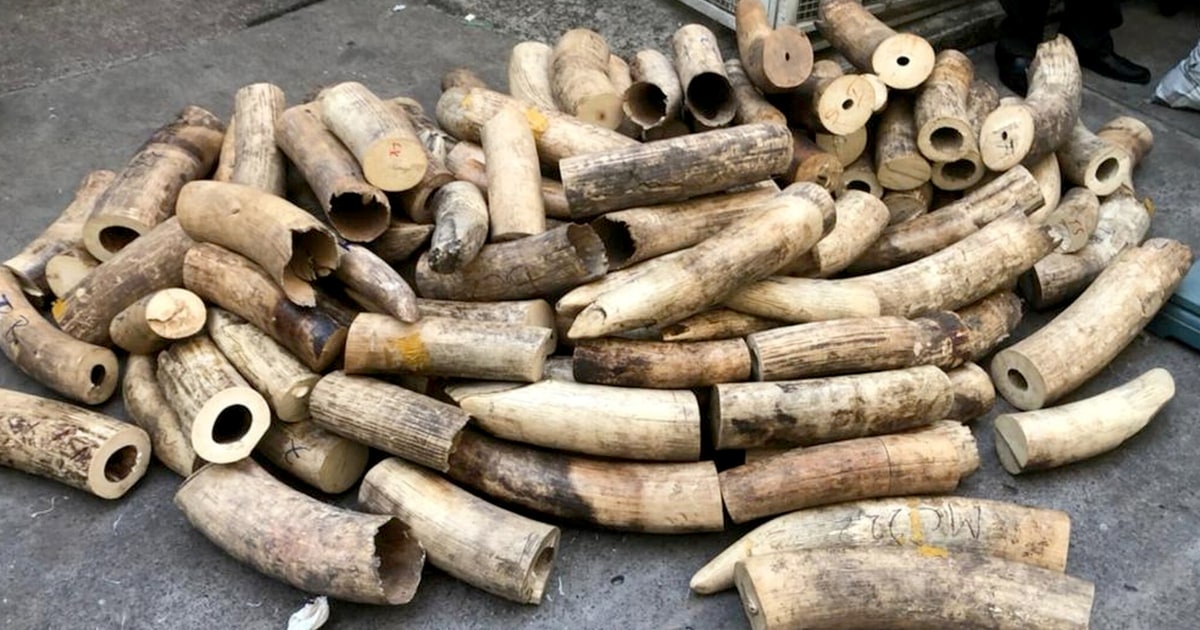
Two men from the Democratic Republic of Congo were arrested outside of Seattle last week on charges that they shipped ivory and white rhinoceros horn to the United States and had plans to send more, federal prosecutors said.
There is an almost total ban on the African elephant ivory trade in the United States. It is also governed by international treaty.
Herdade Lokua, 23, and Jospin Mujangi, 31, both of Kinshasa, were arrested Wednesday outside Seattle. They are charged with 11 counts that include smuggling, money laundering, and Lacey Act violations for allegedly lying about shipments containing illegal wildlife, the Justice Department said Monday.
They allegedly had the elephant ivory and rhino horn cut into smaller pieces and painted black, and then mixed in with black wood to hide it.
The men allegedly paid bribes to officials in the Kinshasa to ship the materials out of the country. In all around 49 pounds of elephant ivory and five pounds of rhino horn was shipped to the U.S., but the men promised they could send much more, prosecutors said.
It involved an “unindicted co-conspirator” described in court papers as a middleman who uses online profiles and connected buyers to Lokua and Mujangi. The inquiry also involved undercover U.S. agents.
“The investigation is ongoing,” the Justice Department said in a statement.
It said that a task force in the Democratic Republic of Congo that includes its government seized more than 2,000 pounds of ivory and 75 pounds of pangolin scales in Kinshasa worth around $3.5 million after the arrests of the two men in the U.S.
Lokua and Mujangi have pleaded not guilty, and they were ordered held, according to federal court records. Their attorneys did not immediately respond to a request for comment late Monday.
In April, Lokua promised the middleman he’d be able to send two tons of elephant ivory, according to the indictment. Photos of white rhino horn were also sent and offered.
The white rhinoceros was once thought to be extinct, but its population has rebounded with protections and it is classified as “near threatened,” according to the World Wildlife Fund. There are only two northern white rhino alive.
Source: | This article originally belongs to Nbcnews.com










